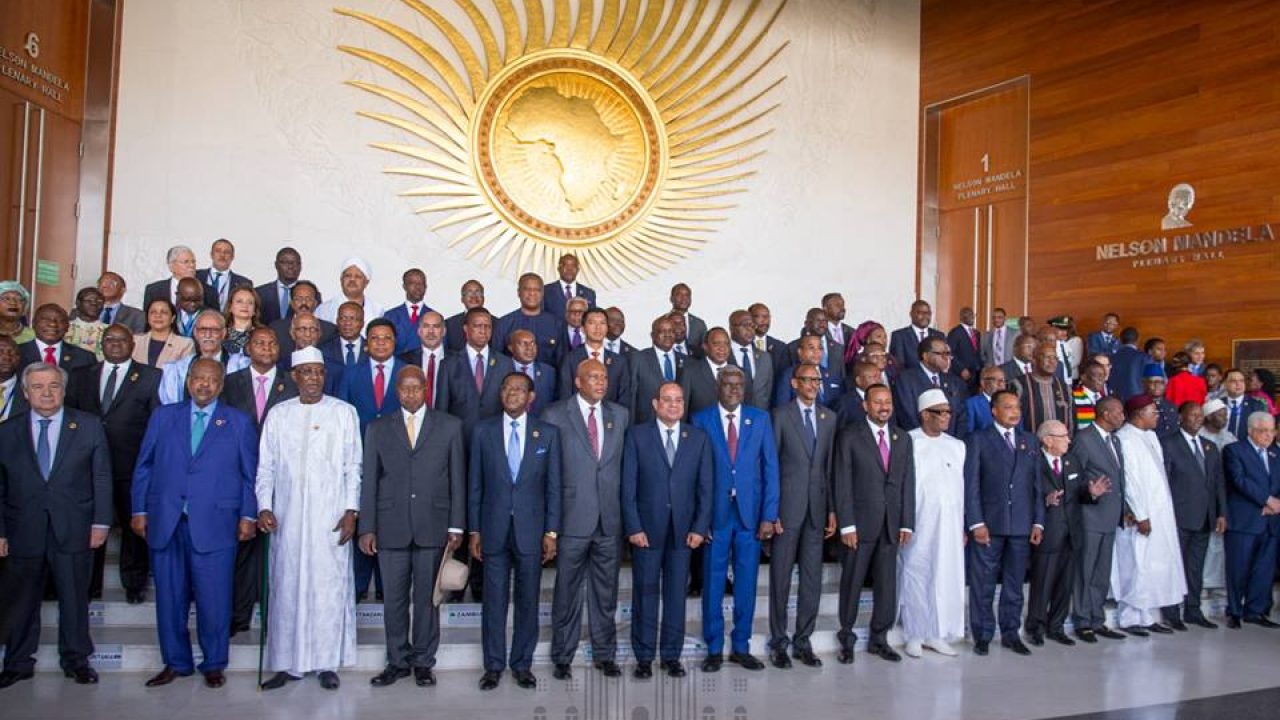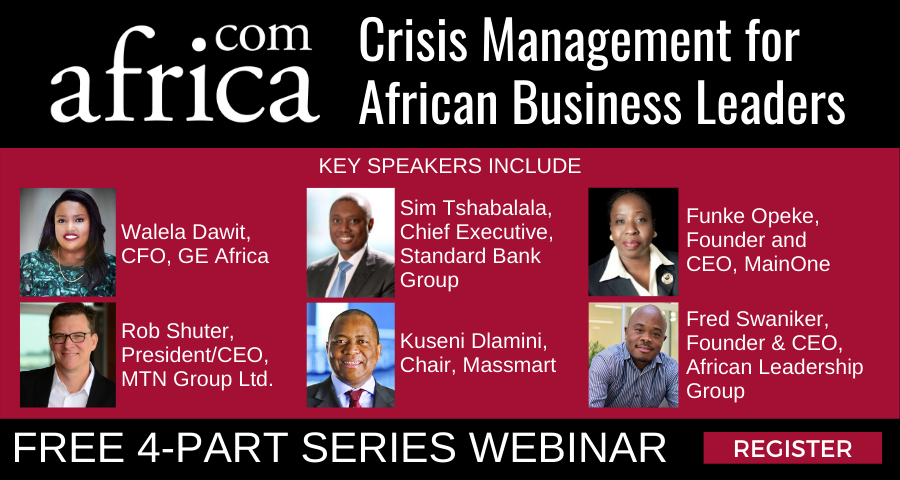When the world’s richest nations are struggling to provide their own citizens with masks, testing kits and ventilators, how can countries with even less resources cope?
Although much of the continent has seen considerable advancements in political processes, economic diversification and increased foreign direct investment in recent years, African leaders are currently faced with the daunting challenge of combatting the spread of a relentless, borderless virus with finite resources. Not surprisingly, across Africa the responses to the COVID-19 pandemic have been as varied as the continent itself—with praise for the swift, courageous and resilient actions by some governments matched by the criticism of sluggishness and ambiguity of others. As limited resources equate to increased vulnerability, it is arguably more important for the governments across the African continent to provide services and information to their citizens that are consistent, timely, and accurate to effectively mitigate the spread of COVID-19.
But the challenges extend beyond the lack of resources to be sure. Namely, with public trust in African governments varying greatly between countries, how can governments position themselves as credible authorities on matters related to public health? History has shown—and not just in Africa—that authoritarian leadership often exploits such crises as opportunities to entrench greater influence over the media, increase control over state coffers or to imprison political opponents all in the name of public safety. African governments must also convince the movers and shakers of bustling informal economies across rural areas, townships and megacities alike to stay home without adequate programs in place to supplement their income. Finally, how do governments ensure public safety when, in some countries, scenes of police roadblocks, military patrols and checkpoints evoke painful (and often recent) memories of political unrest or turbulent transitions of power?
While most countries of the world look after their own national interests in these uncertain times, we opted to take a snapshot of several governments across Africa who are implementing myriad strategies to combat COVID-19 and protect their citizens—often applying creativity and resourcefulness where there are few resources.
South Africa
Although the government of South Africa was lauded in the initial phases of the pandemic for implementing one of the most aggressive national lockdowns seen worldwide, including police and military enforced bans on exercising outdoors and the prohibition of alcohol and tobacco sales and consumption in public, the continent’s second largest economy recorded the highest number of confirmed cases.
President Cyril Ramaphosa and Health Minister Zweli Mkhize have been praised for their passionate and knowledgeable understanding of the crisis, as evident in the rapid establishment of testing centers in such densely populated townships of Yeoville outside of Johannesburg and the wide distribution of hand sanitizer via government vehicles. Yet critics of the lockdown cite troubling allegations of law-enforcement and military officials engaging in excessive force and abuses resulting in additional deaths. As a result, many south Africans have taken to social media to express their feelings of disconnectedness with the #DearMrPresident hashtag looking for additional clarifications on evolving guidance and swift justice for the victims of police brutality.
Some have noted that its history of combatting malaria, tuberculosis, HIV and, more recently, coercing a stubborn Cape Town population to dramatically reduce its water usage habits in the 2018 crisis provided some valuable lessons learned for Ramaphosa’s government.
Morocco
The North African Kingdom of Morocco, one of the first to close off its airspace, borders and mosques, has also enacted stringent laws requiring masks and permits for citizens venturing outside of their homes. But its bold approach to combatting the spread of misinformation about COVID-19 online may be just as impactful as its offline tactics. In recent weeks, the government has taken to incarcerating individuals for sharing false statements and rumors on online platforms such as YouTube, resulting in a number of arrests as the country continues to release previously imprisoned individuals to prevent the spread behind bars.
Morocco has also benefited from a new Twitter activation across select African nations that aims to promote the disbursement of accurate and timely information and advisory services by authorized authorities and health officials and mitigate false information that may lead to public unrest and further spreading of COVID-19.
Not surprisingly, the pandemic has decimated the country’s manufacturing sector, often hailed as a true success story of government-led programs and private investment, and the tourism sector—a key driver of foreign exchange for the Kingdom. North America’s diminishing appetite for buying up phosphates from the Western Sahara hasn’t helped either. As it considers a variety of fiscal stimulants, all options are on the table from tapping into an IMF credit line to rolling out a government-sponsored fund with substantial contributions from the country’s wealthy elite.
Ghana
Ghana has been decisive in its response to the COV-19 crisis, although efforts have been somewhat fraught with the echoes of past national trauma surrounding the enforcement of measures of confinement for citizens.
The good news is, following the confirmation of the first two COVID-19 cases in Ghana by the renowned Noguchi Memorial Institute of Medical Research at the University of Ghana, things moved very quickly. A concerted effort towards contact tracing began, non-admittance of travelers from countries where at least 200 cases of COVID-19 were recorded was declared and a dedicated website to provide official updates and information went live. Further, several major outdoor markets in and around the capital were disinfected, beaches were closed to help contain the spread of the pandemic and the county’s borders were closed for an initial period and then extended by the President for another. Impressively, Ghana has also locally produced Personal Protective Equipment (PPE), such as face masks and given a 50% pay rise to frontline health workers amongst other laudable initiatives.
Despite seemingly having done all the right things, the enforcement of the President Nana Akufo-Addo’s stay at home order for parts of the country was met with some initial, underlying national anxiety, such as hasn’t been seen since the days of coup d’états and military rule. In the national psyche, such stringent measures, even where necessary, are usually associated with a tough militaristic approach to enforcement. As a result, the circulation of videos showing brutality from security services—some factual and others out of context–but depicting violence nonetheless—has added another layer of tension to a system that is stretched to capacity. In a recent national address, the President tackled this issue head on; the first steps toward bridging that trust gap. Here we see that, just as important as mainline mitigating measures, are communication protocols that endear confidence, trust and hope—the hallmarks of true crisis leadership.
More Vulnerable Nations
Dr Matshidiso Moeti, the World Health Organization (WHO) Regional Director for Africa, noted on April 7 that COVID-19 cases in Africa have risen to more than 10,000, a number that is quickly rising past the 18,000 mark as of April 17. It is likely that this number will increase substantially and tackling the pandemic will require a decentralized response. She further argued that communities must be empowered and receive the resources, information and expertise needed to tackle outbreaks at the local level.
While the UN health agency reports that thus far countries like Ghana, Kenya, Ethiopia, Egypt, Morocco, Tunisia and Nigeria have succeeded in expanding their national testing capabilities and increasing efficiency, others are lagging behind with existing crises impeding their ability to initiate any real sustained response to the pandemic.
Zimbabwe is one such country where urgent international support is required to prevent millions from plunging deeper into hunger. According to the World Food Programme (WFP), as COVID-19 takes hold the impact will be compounded by existing crises related to drought and a lack of food.
In a recent tweet, the WFP also indicated that, the number of food-insecure people in Burkina Faso is expected to triple in the next lean season. This coupled with the fact that the country has seen the largest number of COVID-19 related deaths anywhere in sub-Saharan Africa makes for a dire story indeed.
Additionally, human rights experts are renewing their call for an end to fighting in South Sudan as the pandemic spreads. In an appeal to the authorities to step up efforts to contain the spread of the virus, its Commission on Human Rights has warned that millions of people who have fled years of violence are at greater risk.
It is therefore reassuring that, given the scale of the crisis, several African countries are due to benefit from a nearly $2 billion programme from the World Bank aimed at helping developing countries deal with the effects of the COVID-19 pandemic. This represents a commendable international effort aimed towards ensuring a balanced response across hard hit communities and hopefully offer some respite.
The fight against the COVID-19 pandemic is one that must take place on several fronts. Critical to victory are government strategies that address the intangibles like hope, collective morale, transparency, and cooperation, as much as the all-important frontline efforts. In the story of African countries and their efforts towards containing the spreading virus, while there have been some missteps indeed, we see a strength of will, vigor and ingenuity that often goes underreported or altogether ignored. While in some ways the continent still needs the support of the global community, the world is waking up to an Africa that is showing signs of sophisticated, heart-led and organically African solutions to the pandemic amidst worldwide disarray.
Kevin Nolan and Lambert Akwa – KARV Communications
KARV Communications is a strategic communications consulting firm headquartered in New York.


